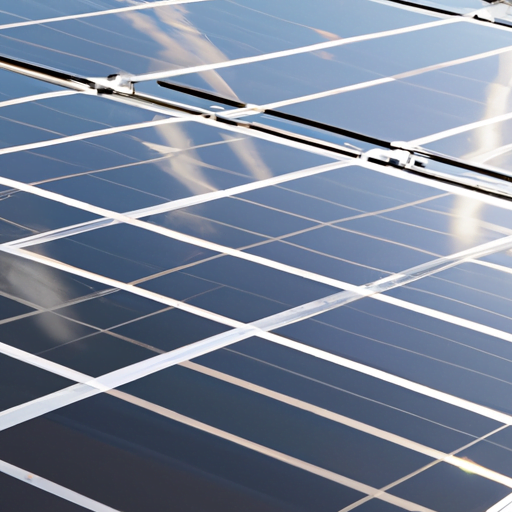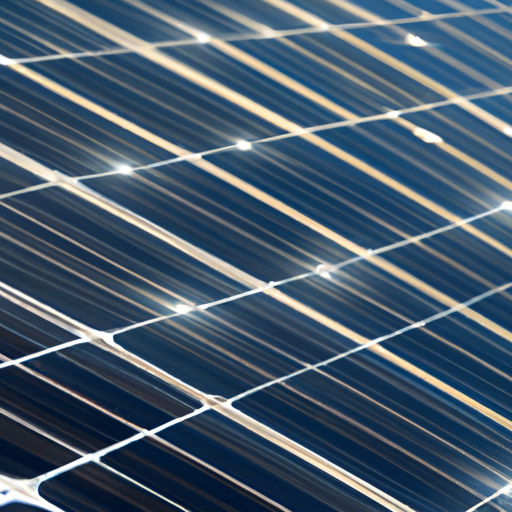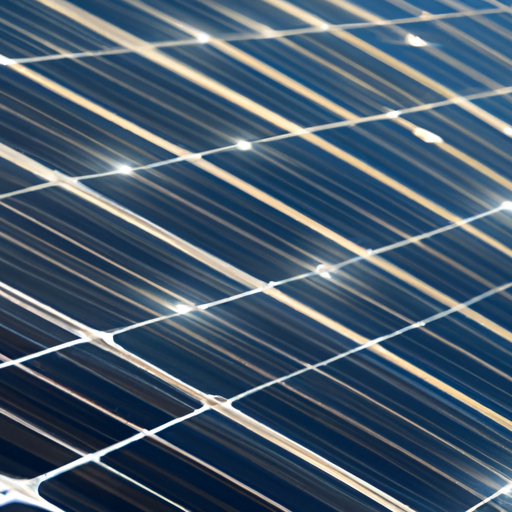So, you’ve made the decision to go off grid and invest in solar panels. That’s awesome! But, here’s the thing – keeping those solar panels clean and well-maintained is crucial for optimal energy production. I mean, you don’t want to miss out on all those free rays, right? So, how often should you be washing your solar panels to ensure they’re working at their best?
Well, the answer isn’t exactly set in stone. It really depends on where you live and the environmental conditions around you. If you’re living in an area with heavy pollution, dusty deserts, or surrounded by a lot of trees, then chances are your solar panels will accumulate more dirt and debris. In that case, you might need to clean them more frequently, like every 3-4 months.
But, if you’re lucky enough to live in an area with frequent rainfall or near the coast where the rain can naturally wash away most of the dirt, you could get away with cleaning them just once or twice a year. However, it’s still important to regularly inspect your solar panels for any significant build-up of grime or bird droppings that could affect their performance.
So, in the next article, we’ll dive deeper into the topic and share some effective ways to clean your solar panels, ensuring you can generate the maximum amount of energy possible. Trust me, it’s not as daunting as it sounds. You’ll learn some handy tips and tricks to keep your solar panels shining bright, no matter the weather or location. Stay tuned!

How to Clean Solar Panels Effectively
Solar panels are a clean and renewable energy source that have gained popularity in recent years due to their environmental benefits and potential for cost savings. However, to ensure that your solar panels operate at peak efficiency, it is important to keep them clean and free from any debris or dirt that may accumulate. In this article, we will discuss the effects of dirty solar panels, the importance of regular cleaning, determining the cleaning frequency, safe cleaning methods, the cleaning process, safety precautions, professional cleaning services, alternative cleaning methods, and monitoring and maintenance. By following these guidelines, you can maintain optimal energy production and extend the lifespan of your solar panels.
Effects of Dirty Solar Panels
Diminished Energy Output
One of the primary effects of dirty solar panels is diminished energy output. When dust, dirt, or other debris accumulate on the surface of the solar panels, it prevents sunlight from reaching the photovoltaic cells. As a result, the panels are not able to convert sunlight into electricity as efficiently as they should. Studies have shown that even a thin layer of dirt on the solar panels can result in a considerable reduction in energy production.
Reduced Efficiency
In addition to diminished energy output, dirty solar panels also experience reduced efficiency. When the surface of the panels is covered in dust or dirt, it acts as an insulating layer that can cause the panels to overheat. This can lead to a decrease in efficiency and can even shorten the lifespan of the solar panels.
Risk of Damages
Another consequence of neglecting to clean your solar panels is the risk of damages. Debris such as leaves, branches, or bird droppings can accumulate on the panels and cause physical damage. In extreme cases, the accumulation of debris can lead to cracks or scratches on the surface of the solar panels, compromising their effectiveness and potentially requiring costly repairs or replacements.
Importance of Regular Cleaning
Optimizing Energy Production
Regular cleaning of your solar panels is essential to optimize energy production. By keeping the panels clean and free from any obstructions, you ensure that they are able to receive maximum sunlight, allowing for optimal energy conversion. This can result in increased energy output and a higher return on your investment.
Extending Lifespan
Cleaning your solar panels regularly also helps to extend their lifespan. Accumulated dirt and debris can cause corrosion or other damage to the surface of the panels over time. By removing these contaminants, you prevent potential long-term damage and ensure the longevity of your solar panels.
Preventing Costly Repairs
By investing time and effort into regular cleaning, you can prevent costly repairs or replacements. Regular maintenance and cleaning can help identify any potential issues early on, allowing for prompt repairs and minimizing the risk of significant damage to your solar panels.
Determining the Cleaning Frequency
Factors to Consider
The frequency of cleaning your solar panels depends on several factors. Firstly, the climate conditions in your area can play a significant role in determining how often you need to clean your panels. If you live in a dry and dusty environment, you may need to clean your panels more frequently compared to those living in areas with regular rainfall.
Climate Conditions
Rainfall can provide natural cleaning for solar panels, as it helps to rinse away any accumulated dirt or debris. In areas with moderate rainfall, it is generally recommended to clean the panels at least once or twice a year. However, in drier climates or during periods of drought, more frequent cleaning may be necessary to maintain optimal performance.
Panel Tilt and Orientation
The tilt and orientation of your solar panels can also influence the cleaning frequency. Panels that are installed at a steeper angle or face south are generally self-cleaning to some extent, as rainwater can easily rinse off any dirt or debris. On the other hand, panels installed at a low angle or facing north may require more frequent cleaning to ensure optimal performance.

Safe Cleaning Methods
When it comes to cleaning your solar panels, it is important to use safe and effective methods to avoid causing any damage. Here are some commonly recommended cleaning methods:
Water and Soft Brush
One of the simplest and most effective methods for cleaning solar panels is using water and a soft brush. Start by rinsing the panels with water to remove any loose dirt or debris. Then, gently scrub the surface of the panels with a soft brush to remove any stubborn dirt. Finally, rinse off the panels with water to ensure they are free from any residue.
Solar Panel Cleaning Kit
If you prefer a more specialized approach, you can also invest in a solar panel cleaning kit. These kits usually include a soft brush or sponge specifically designed for cleaning solar panels, as well as a cleaning solution that is safe for use on the panels. Follow the instructions provided with the kit for best results.
Avoiding Abrasive Materials
It is important to avoid using abrasive materials or harsh chemicals when cleaning your solar panels, as they can scratch or damage the surface. Stick to gentle and non-abrasive methods to ensure the longevity and effectiveness of your panels.
Cleaning Process
Preparing for Cleaning
Before you begin the cleaning process, it is important to take some precautions. First and foremost, ensure that you disconnect the electricity to the solar panels to avoid any risk of electrical shock. Additionally, check the weather forecast to ensure that the panels will have ample time to dry after cleaning. Cleaning the panels on a cool day or in the early morning or late afternoon is ideal to avoid rapid drying.
Rinsing Panels
Start by rinsing the solar panels with water to remove any loose dirt or debris. This can be done using a hose or a bucket of water. Make sure to cover the entire surface of the panels, paying special attention to any areas where dirt may have accumulated.
Gently Scrubbing
Once the panels have been rinsed, use a soft brush or sponge to gently scrub the surface of the panels. Take care not to apply too much pressure to avoid scratching the surface. Work in small circular motions, focusing on any areas that require additional cleaning.
Rinsing and Drying
After scrubbing the panels, rinse them again with water to remove any remaining dirt or cleaning solution. Ensure that all traces of cleaning solution are removed, as they can leave behind a residue that may affect the performance of the panels. Finally, allow the panels to air dry completely before reconnecting the electricity.
Safety Precautions
When cleaning your solar panels, it is important to take certain safety precautions to protect yourself and the panels from any damage.
Disconnect Electricity
Before starting the cleaning process, always remember to disconnect the electricity to the solar panels. This will help minimize the risk of electrical shock and ensure your safety.
Avoid Walking on Panels
Never attempt to walk on the surface of the solar panels, as this can cause damage or even break the glass. Instead, clean the panels from the ground or use a soft brush with an extended handle to reach higher areas.
Be Mindful of Roofs
If your solar panels are installed on a roof, exercise caution when accessing them. Use appropriate safety equipment such as ladders and harnesses, and ensure that you are aware of the weight limits and structural integrity of the roof.
Professional Cleaning Services
While cleaning solar panels can be a relatively straightforward task, some homeowners may prefer to hire professional cleaning services to ensure optimal results. Here are some benefits of hiring professionals and tips for finding reliable companies:
Benefits of Hiring Professionals
Professional solar panel cleaning services have the expertise and equipment to clean your panels effectively. They can identify any potential issues and provide recommendations for maintenance or repairs. Additionally, hiring professionals can save you time and effort, allowing you to focus on other important tasks.
Finding Reliable Companies
When looking for professional cleaning services, it is important to do your research and find reputable companies with experience in solar panel cleaning. Ask for recommendations from friends or family who have had their panels cleaned, and read reviews or testimonials online to gauge the quality of service provided.
Comparing Prices and Services
When contacting different cleaning companies, make sure to inquire about their pricing and the range of services they offer. Compare the prices and services provided by different companies to ensure that you are getting the best value for your money.
Alternative Cleaning Methods
In addition to traditional cleaning methods, there are also alternative methods that can help keep your solar panels clean and free from debris.
Rainwater Benefits
Rainwater can help naturally rinse away dirt and debris from the surface of your solar panels, reducing the need for manual cleaning. However, in areas with infrequent rainfall or excessive dust, additional cleaning may still be necessary.
Automated Cleaning Solutions
Automated cleaning solutions, such as robotic cleaners or water sprinkler systems, are becoming increasingly popular. These systems are designed to periodically clean solar panels without the need for manual intervention. While they can be more expensive to install, they offer a convenient and efficient way to keep your panels clean.
Self-Cleaning Panels
Some manufacturers offer self-cleaning solar panels that are designed to repel dirt and debris. These panels incorporate special coatings or surface treatments that prevent dirt from adhering to the surface, allowing for self-cleaning when exposed to rain or sunlight. While these panels may require a higher upfront investment, they can be a low-maintenance option in the long run.
Monitoring and Maintenance
Regular monitoring and maintenance are essential to ensure the optimal performance of your solar panels.
Regular Inspections
Perform regular visual inspections of your solar panels to check for any signs of damage or debris accumulation. Look for cracks, scratches, or loose connections, and address any issues promptly to prevent further damage.
Monitoring Performance
Monitor the performance of your solar panels regularly to ensure that they are operating at the expected efficiency levels. This can be done by comparing the energy production of your panels to the estimated output based on the sunlight available. If you notice a significant decrease in energy production, it may be an indication that your panels require cleaning or maintenance.
Addressing Issues Promptly
If you identify any issues during your inspections or monitoring, it is important to address them promptly. Contact a professional to assess and repair any damage, and schedule a cleaning if necessary. By addressing issues promptly, you can prevent further damage and ensure the longevity and efficiency of your solar panels.
Conclusion
Regular cleaning is essential to maintain the optimal efficiency and longevity of your solar panels. By understanding the effects of dirty solar panels, the importance of regular cleaning, determining the cleaning frequency, using safe cleaning methods, and following proper maintenance guidelines, you can ensure that your solar panels continue to generate clean and renewable energy for years to come. So, make it a habit to clean your solar panels regularly and reap the benefits of optimal energy production and extended lifespan.




